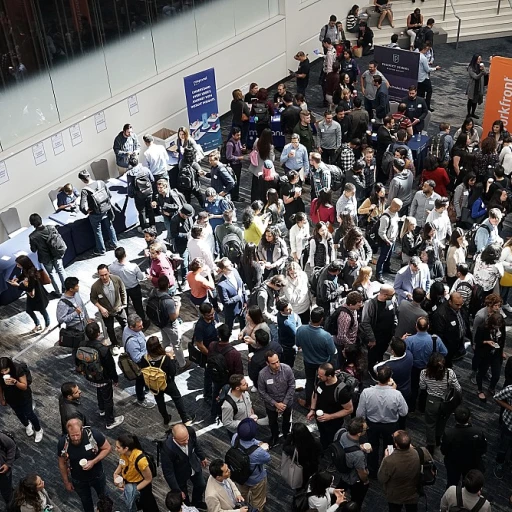Factors Influencing Background Check Duration
What Influences the Time Taken for a Background Check?
Understanding the factors influencing the duration of a background check is crucial for employers and candidates. Background checks are integral to the hiring process, providing essential insights into candidate history and qualifications. However, the time it takes to complete these checks can vary based on several key elements.- Type of Screening Service: Different types of background checks, such as criminal background check, employment background, and credit reporting, naturally have different turnaround times. Comprehensive services may take longer due to the breadth of information being verified.
- Depth of Verification: The more thorough the check, the longer it may take. A basic verification might be completed quickly, whereas a detailed criminal background or credit report requires meticulous accuracy.
- Availability of Records: The ease of access to records, such as criminal records or credit histories, plays a significant role. Delays can occur when records are complex or difficult to obtain from different jurisdictions.
- Candidate's History: The complexity of a candidate's personal history can affect processing time. Individuals with extensive employment history across various locations might naturally slow down the process as each requires individual verification.
- Turnaround Time Variability by Location: Certain regions or countries may have different processes or data privacy regulations that affect how fast checks can be performed.
- Check Errors: Occasionally, errors in the initial information provided—such as misspellings or incorrect details—can add additional time as services need to verify and correct these inaccuracies.
Standard Timelines for Different Types of Background Checks
How Long Different Background Checks Typically Take
When conducting background checks, the time required can vary significantly based on the type of screening service. Here’s a look at standard timelines for various checks.- Criminal Background Checks: Typically, these are among the quicker processes. Standard screening services can often access criminal records within one to three business days. However, if additional verification is required across different jurisdictions, the process can extend to around a week. The thoroughness of the background screening directly impacts how fast employers can make informed hiring decisions.
- Employment Background Checks: These checks often take longer as they require detailed verification of a candidate’s work history. Depending on factors like the time taken by previous employers to respond, the turnaround time for these checks can range from three to five business days.
- Credit Reports: Accessing a candidate’s credit report usually does not take long. However, under the Fair Credit Reporting Act (FCRA), candidates must be given notice, which may add a day or two. Therefore, most credit report screenings are completed within two to four business days, aiding in a timely pre-employment evaluation.
- Education Verification: This check involves confirming educational qualifications with institutions, which can vary widely in response time. Typically, candidates can expect the process to finalize within five to seven business days, particularly if institutions require additional time to verify records.
The Role of Technology in Speeding Up Background Checks
Impact of Technological Advances on Background Check Timelines
In today's fast-paced hiring environment, technology has become a cornerstone in expediting the background check process. Cutting-edge tools and platforms are revolutionizing the way companies conduct employment background checks with efficiency and precision. These technological innovations primarily assist in reducing turnaround times, ensuring businesses can make hiring decisions more swiftly and confidently.
Recent advancements have introduced automated systems that can process background screenings and verifications, effectively trimming down the timeline from days to mere hours. This is especially beneficial in gathering and cross-referencing criminal records and credit reports in a manner that is both quick and accurate. For instance, artificial intelligence and machine learning algorithms are employed to sift through vast amounts of data, pinpointing relevant information in a fraction of the time it would take manually.
Furthermore, digital platforms facilitate seamless integration with various data sources, enhancing the verification of a candidate's history in real-time. Through these integrations, employers can access comprehensive criminal background and credit reporting, which significantly streamlines the hiring process.
Despite the substantial role of technology in speeding up background checks, maintaining the balance between speed and accuracy remains crucial. It's imperative for employers to be vigilant of check errors that may occur due to system glitches or data mismatches. While technology is a valuable ally, human oversight is still necessary to ensure the precision of the background screening process.
For more insights on how self-checking trends are shaping the industry, visit our blog post on self-checking matters.
Challenges in Achieving Accurate Background Checks Quickly
Overcoming the Challenges of Quick and Accurate Results
Achieving an accurate background check swiftly can be quite challenging, yet crucial in the hiring process. An efficient and thorough background screening can help ensure that the correct decisions are made when hiring a candidate. However, there are several hurdles that companies often encounter in this process. Firstly, the accuracy of data retrieval is vital but can be hindered by outdated or incomplete records. Criminal records, for instance, may vary from one jurisdiction to another, and discrepancies can occur. This can delay the processing time and affect the reliability of the checks. Another common issue is compliance with the Fair Credit Reporting Act (FCRA), especially when dealing with credit reports. Employers must be cautious to follow legal guidelines, which play a significant role in how long the checks take. Furthermore, obtaining verification from various institutions such as previous employers or educational entities can sometimes take longer than anticipated. These verifications are essential for constructing a comprehensive employment background check, but waiting for responses from these agencies can slow down the process. Addressing the challenge of check errors is also crucial. Errors in the background screening process can result in significant delays and potential litigation. Hence, quality screening services prioritize diligent checks during the entire report generation process. Moreover, the reliance on manual processes contributes to extended turnaround times. Although technology is helping to speed up background checks, integrating automated systems into traditional practices presents its own set of challenges. While accuracy should never be compromised for speed, businesses can implement strategies to expedite the pre-employment background screening process while ensuring comprehensive results. Understanding these challenges and devising solutions to overcome them is essential for maintaining an efficient and credible hiring process.Industry Trends Affecting Background Check Duration
Emerging Influences on Background Check Duration
The landscape of background checks is ever-evolving, with several trends influencing their duration. Keeping up with these changes can help businesses streamline their employment background screening processes.
- Increased Demand for Comprehensive Checks: More companies are striving for accurate and thorough screenings, leading to longer processing times. This includes detailed criminal background checks, credit report analyses, and various verifications to ensure that candidates meet job requirements.
- Regulatory Revisions and Compliance: Updates in fair credit reporting and privacy laws mean that background screening services must adhere to a stricter set of rules. This can extend the time checks take, as businesses must ensure compliance with all legal directives.
- Integration of Advanced Technologies: While technological advancements like AI and machine learning have the potential to speed up the hiring process, the integration and adaptation period can initially slow down background checks as systems are updated and optimized.
- Globalization of Talent Pools: As companies hire candidates from around the world, the complexity and duration of background checks increase. Verifying international records often takes more time due to varying systems of record-keeping and different compliance standards.
- Focus on Candidate Experience: Businesses are placing greater emphasis on the candidate experience during background screening. Striking a balance between thorough verification and efficiency helps maintain satisfaction but can also affect the timing of these processes.
By understanding these trends and adapting strategies accordingly, employers can better manage turnaround times and maintain an efficient hiring process.










